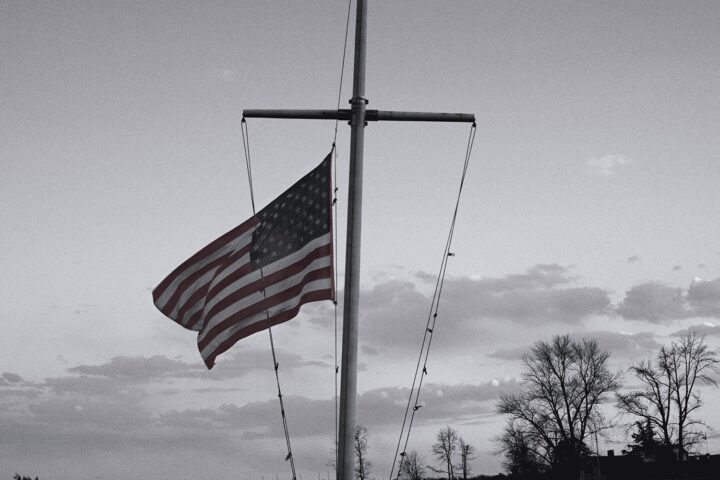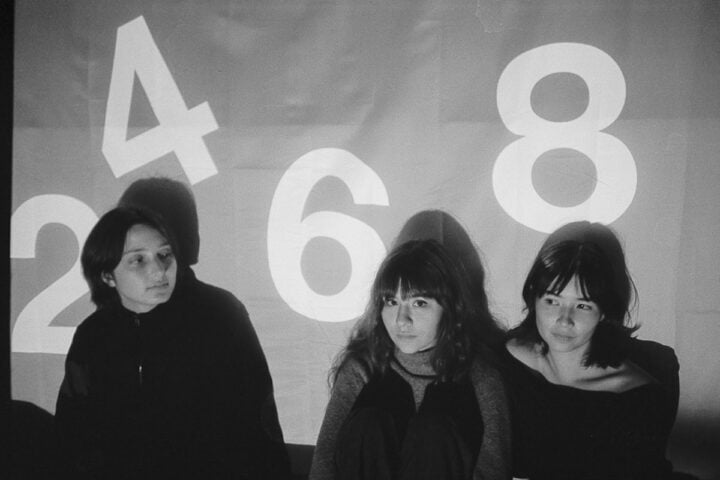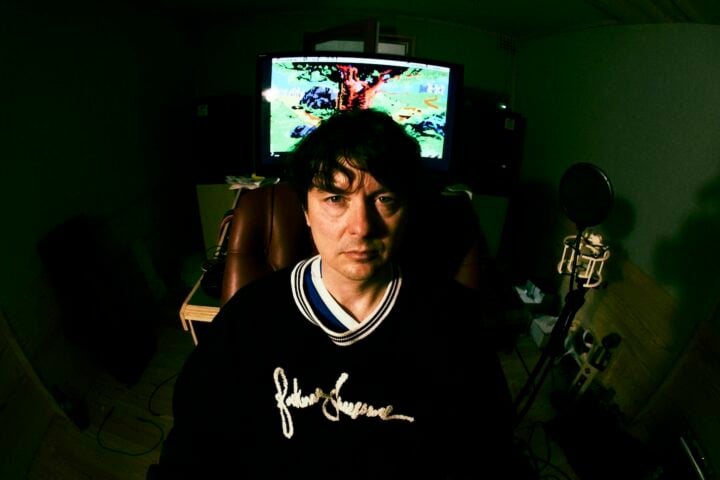Patterson Hood has on several occasions claimed that his favorite album is Todd Rundgren’s sprawling 1972 avant-pop opus Something/Anything? It’s an influence that’s never been especially detectable in his music, to put it lightly. Runt’s magnetic popcraft as a songwriter and dense, meticulous style as a producer seem practically antithetical to the direct and unlabored, populist ethos of his band Drive-By Truckers—and perhaps that’s due to the steadfastly rough-and-ready influence of his partner in crime, Mike Cooley.
With that in mind, Exploding Trees & Airplane Screams, Hood’s first solo album since 2012’s Heat Lightning Rumbles in the Distance and fourth overall, feels like a record the 60-year-old singer-songwriter has been keeping inside him for decades only to finally burst out. It doesn’t sound like Rundgren, per se, but the melodic, piano-based songwriting and lush, evocative orchestrations that are abundant throughout represent a level of sonic exploration that Hood has never approached before. It’s some of his most impressive and freshest work in years.
The 10 songs here were written across a span of decades, with the origins of one, “Airplane Screams,” traceable all the way back to the early 1980s. Hood’s Murdering Oscar (and Other Love Songs), from 2009, also juxtaposed years-old compositions with newer songs, but this time he proves more interested in exploring his past on a thematic level than a musical one.
Musically, in fact, almost everything about this album feels new and different for Hood, including for its producer, Decemberists guitarist Chris Funk, whom Hood befriended after moving from his longtime home base of Athens, Georgia, to Portland, Oregon, in 2013. Funk encouraged Hood to play piano instead of guitar on several tracks, and tapped a bevy of musicians outside of Hood’s usual circle of collaborators, including younger acolytes like Wednesday and Waxahatchee. The resulting instrumental palette is completely unlike anything else in Hood’s catalog, rife with robust orchestrations and eerie drones.
“Exploding Trees,” inspired by Hood’s memories of a biblical ice storm that hit Athens nearly 30 years ago, boasts impressionistic observations and psychedelic touches that would make Sparklehorse proud. Not every song here is quite as much of a stylistic departure; in fact, Hood revives a dormant Springsteen influence endemic to his earliest recorded work with “Last Hope,” which sounds, like any good Nebraska knockoff should, both desolate and anthemic. But Funk’s spacious, layered production grants even the folksier compositions a grand flourish.
Take “The Pool House,” an ominous vignette about a suicidal night swimmer that one could well imagine an acoustic version of appearing on Killers and Stars, Hood’s 2004 album of similarly bleak homemade demos. But once Funk adds creepy sinews of strings and woodwinds over a splattering, jazzy drum pattern, it turns into something fully cinematic.
This ethereal sound is appropriate for an album about sifting through the mists of time. Hood reaches back to some of his most formative memories on songs like “The Van Pelt Parties,” a thumping, Wednesday-featuring rocker that sees him back in childhood, slowly coming to comprehend and then taking up adult debauchery (or “the complexity of dirty jokes and grown-up-level fizz”) as MJ Lenderman and Xandy Chelmis smear tasty guitar licks all over the mix. Even when the events depicted seem fuzzy and distant, Hood writes about them with such vulnerability and clear-eyedness that they may as well have happened last week.
That’s especially true of “A Werewolf and a Girl,” a duet with Lydia Loveless that’s surely one of the most forlorn-sounding entries in the teenage cherry-popping song canon. Loveless gives one of the most powerful vocal performances of her career portraying Hood’s paramour, and it’s a testament to his deeply sympathetic writing that it feels more like her song than his. As a character who seems intent on keeping her guard up even in the most intimate of situations, it’s through her that we feel the messiness, the sadness, and, finally, the ultimate catharsis of an encounter whose emotional details seem as vivid to Hood now as ever before.
Like virtually every song on Exploding Trees & Airplane Screams, “A Werewolf and a Girl” is about the past, but it’s far from nostalgic. On it, Hood sets out to explore how the old days have shaped his present and are guiding him toward the future. On the sweet, sing-songy closer “Pinnochio,” he reflects on lessons gleaned from his favorite childhood film, positioning it not as a symbol of innocence lost but as an instigator for all the life he’s lived since. “It’s a whale of a tale with so many miles to go/But I get a little closer each day to my long term goal,” he muses, making explicit what’s more or less implicit in the new and unexpected sounds of Exploding Trees: that he’s a got a whole lot more life, and music, in him.
Since 2001, we've brought you uncompromising, candid takes on the world of film, music, television, video games, theater, and more. Independently owned and operated publications like Slant have been hit hard in recent years, but we’re committed to keeping our content free and accessible—meaning no paywalls or fees.
If you like what we do, please consider subscribing to our Patreon or making a donation.






